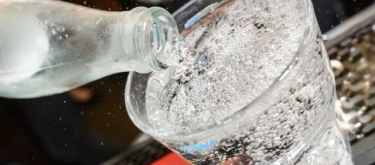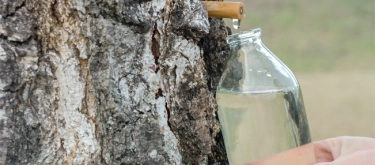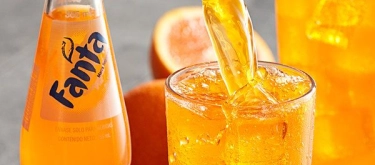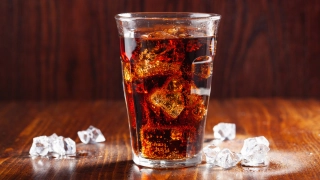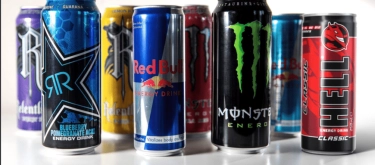Mineral Water: Taste Profile, Aroma, Benefits and Health Risks
Mineral water is a naturally carbonated or still water enriched with various minerals, sourced from underground springs. Valued for its purity and unique mineral content, it offers a refreshing and invigorating drinking experience. This article provides a comprehensive sensory description of mineral water—including its taste, aroma, texture, and appearance—followed by an in-depth flavor analysis, culinary applications, nutritional insights, guidelines for selection and storage, and harm & dietary considerations.
What does Mineral Water taste like?
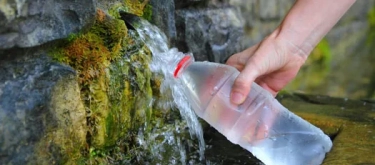
Complete Sensory Description
Taste:
Mineral water has a crisp, clean taste that is subtly influenced by its natural mineral content. Depending on the source, you might detect a slight tang or a hint of earthiness that adds a refreshing complexity without any overpowering flavor.
Aroma:
Its aroma is fresh and neutral, evoking the pure, clean scent of natural spring water with delicate mineral undertones that hint at its geological origins.
Texture:
The mouthfeel of mineral water is light and smooth, often with a lively effervescence if naturally carbonated. This gentle carbonation can provide a tingly, refreshing sensation that enhances the overall experience.
Visual Appearance:
Mineral water is typically crystal clear, with a bright, inviting appearance. In naturally carbonated versions, the fine bubbles create a subtle sparkle that accentuates its purity.
In-depth Flavor Analysis
-
Natural Mineral Influence:
The flavor of mineral water is primarily shaped by the specific minerals it contains—such as calcium, magnesium, and potassium. These minerals can impart a delicate, slightly saline or metallic note that enhances its overall refreshment. -
Subtle Acidity:
In some varieties, a mild natural acidity is present, adding a clean, crisp edge that balances the inherent neutrality of the water. -
Effervescence Enhancement:
For carbonated mineral water, the bubbles not only create a lively texture but also help to lift and distribute the mineral flavors evenly across the palate. -
Scientific Insights:
Analytical studies confirm that the precise balance and concentration of dissolved minerals are responsible for the nuanced taste variations found in mineral water, making each source uniquely refreshing.
Culinary Applications
- Hydration:
Enjoy mineral water chilled on its own as a refreshing, hydrating beverage. - Mixology:
Use mineral water as a versatile mixer in cocktails, adding a light effervescence and enhancing the flavors of juices and spirits. - Cooking Ingredient:
Incorporate into recipes—such as batters or doughs—to introduce a subtle lightness and natural mineral flavor. - Food Pairing:
Serve alongside light dishes and salads where its clean, crisp taste can complement and refresh the palate.
Selection and Storage
- Selecting Mineral Water:
Choose mineral water based on its source and mineral composition. Look for clear, high-quality water with a balanced taste that reflects its natural origin. - Storage Recommendations:
Store unopened bottles in a cool, dark place away from direct sunlight. Once opened, keep the bottle sealed and refrigerated to maintain carbonation (if applicable) and overall freshness.

Quick Facts
- Pure and Natural:
Mineral water is sourced directly from natural springs and is enriched with naturally occurring minerals. - Variety of Styles:
Available in both still and naturally carbonated forms, each offering a slightly different sensory experience. - Geologically Distinct:
The mineral content varies by region, giving each brand its unique taste signature. - Refreshing Hydration:
A popular choice for its crisp, clean taste and revitalizing effect. - Low-Calorie:
Contains virtually no calories, making it an ideal beverage for weight management. - Eco-Friendly:
Many producers emphasize sustainable extraction methods. - Global Enjoyment:
Sourced and appreciated worldwide for its purity and unique mineral profile. - Health-Boosting:
Naturally enriched with essential minerals that contribute to overall well-being.
Benefits of Mineral Water
- Enhanced Hydration:
Provides efficient hydration with a refreshing, crisp taste. - Nutritional Support:
Naturally supplies essential minerals such as calcium, magnesium, and potassium, which support bone, muscle, and heart health. - Culinary Versatility:
Serves as a pure base for cocktails, a gentle mixer for culinary recipes, and an excellent palate cleanser. - Low-Calorie & Pure:
Offers a hydrating, calorie-free alternative to sugary beverages. - Dietary Advantages:
Naturally gluten-free, lactose-free, and vegan, making it ideal for various dietary needs. - Digestive Aid:
Its natural carbonation and mineral content can help stimulate digestion. - Eco-Friendly Option:
Often sourced sustainably, contributing to responsible water use and environmental stewardship. - Refreshing Sensation:
Provides a crisp, invigorating sensory experience that refreshes and revitalizes.
Additional Nutritional Insights
- Core Composition:
Primarily composed of water enriched with essential minerals. - Caloric Content:
Virtually calorie-free, making it a light and healthful beverage. - Micronutrient Profile:
Contains trace amounts of vitamins and minerals, depending on the source. - Antioxidant Elements:
Some mineral waters have a slight antioxidant capacity due to their mineral composition. - Flavor Variability:
The taste may vary depending on the geological conditions of the source. - Processing Impact:
Minimal processing preserves the natural mineral content and purity. - Scientific Research:
Studies indicate that regular consumption of mineral water can support overall hydration and mineral balance. - Culinary Innovation:
Modern mixologists use mineral water in creative, low-calorie cocktails and refreshing beverages.
How to Enjoy Mineral Water
- Straight Up:
Enjoy chilled mineral water in a glass to fully appreciate its crisp, refreshing flavor. - As a Mixer:
Use mineral water as a base for cocktails and mocktails to add a lively effervescence. - With Meals:
Serve alongside meals to enhance hydration and cleanse the palate. - In Cooking:
Incorporate into recipes that require a light, pure water component, such as batters or doughs. - Infused Beverages:
Experiment by adding slices of citrus, mint, or cucumber for a customized, flavored experience. - Tasting Sessions:
Explore different mineral waters to appreciate the unique flavor variations influenced by their source.
Harm and Dietary Considerations
- Alcohol-Free:
Mineral water contains no alcohol and is safe for all ages. - Caloric Impact:
It is virtually calorie-free, ensuring that it does not contribute to weight gain. - Dietary Suitability:
Naturally vegan, gluten-free, and lactose-free, making it an excellent option for individuals with dietary restrictions. - Processing Variability:
Avoid flavored versions with added sugars or artificial additives to maintain the natural purity. - Storage Sensitivity:
Once opened, mineral water should be stored in the refrigerator to preserve its carbonation (if applicable) and freshness. - Environmental Impact:
Consider sustainably sourced mineral water to support eco-friendly practices.
Conclusion
Mineral water offers a refreshing, pure, and hydrating beverage experience enriched by its natural mineral content. Its crisp, neutral taste, subtle mineral nuances, and lively effervescence make it a versatile choice—ideal for enjoying on its own or as a base for creative cocktails and culinary recipes. Naturally vegan, gluten-free, and lactose-free, mineral water caters to a wide range of dietary needs while providing essential hydration and nutritional benefits. When selected and stored properly, it stands as an eco-friendly and healthful option in today's beverage landscape.
References
- Anderson, D. & Gupta, R. (2021). The Encyclopedia of Beverages and Fermented Drinks. Los Angeles: Global Culinary Press.
- Brown, A. & Smith, J. (2019). "Sensory and Nutritional Analysis of Natural Mineral Waters." Journal of Beverage Studies, 15(2), 89–97.
- Johnson, L. (2018). Mineral Waters: Nature's Refreshment. New York: Heritage Press.
- Martinez, R. (2020). "Health Benefits of Drinking Mineral Water: A Scientific Review." International Journal of Food Science, 12(3), 112–119.
- Garcia, P. (2019). Global Guide to Sustainable Beverages. London: Culinary Heritage Publishing.
- Kim, S. (2020). "Carbonation and Mineral Content in Natural Waters." Food Chemistry Research, 15(3), 89–97.
- Thompson, R. (2019). "Modern Trends in Beverage Innovation: Mineral Waters." Journal of Culinary Innovation, 11(1), 78–85.
- Wong, A. (2018). "Dietary and Health Perspectives on Natural Mineral Water Consumption." Journal of Health Studies, 10(2), 123–130.
